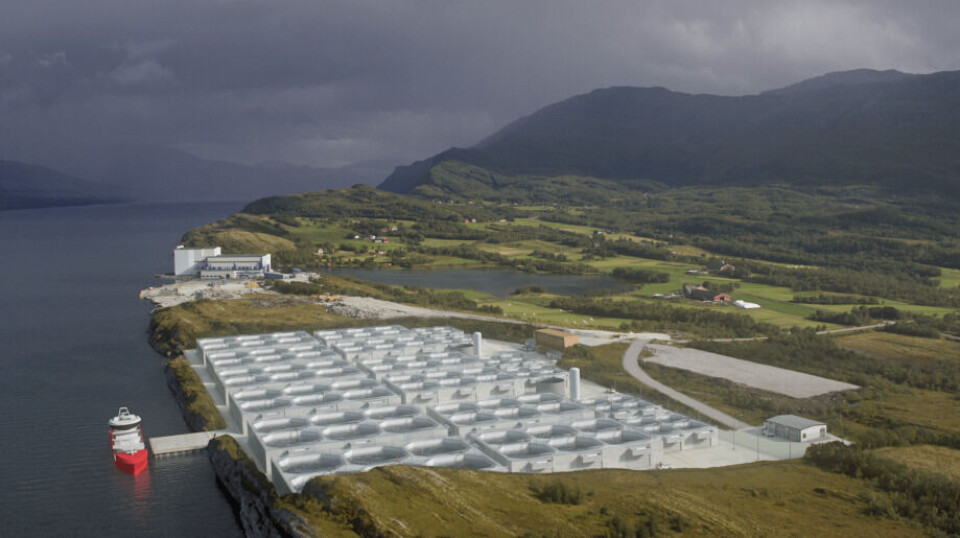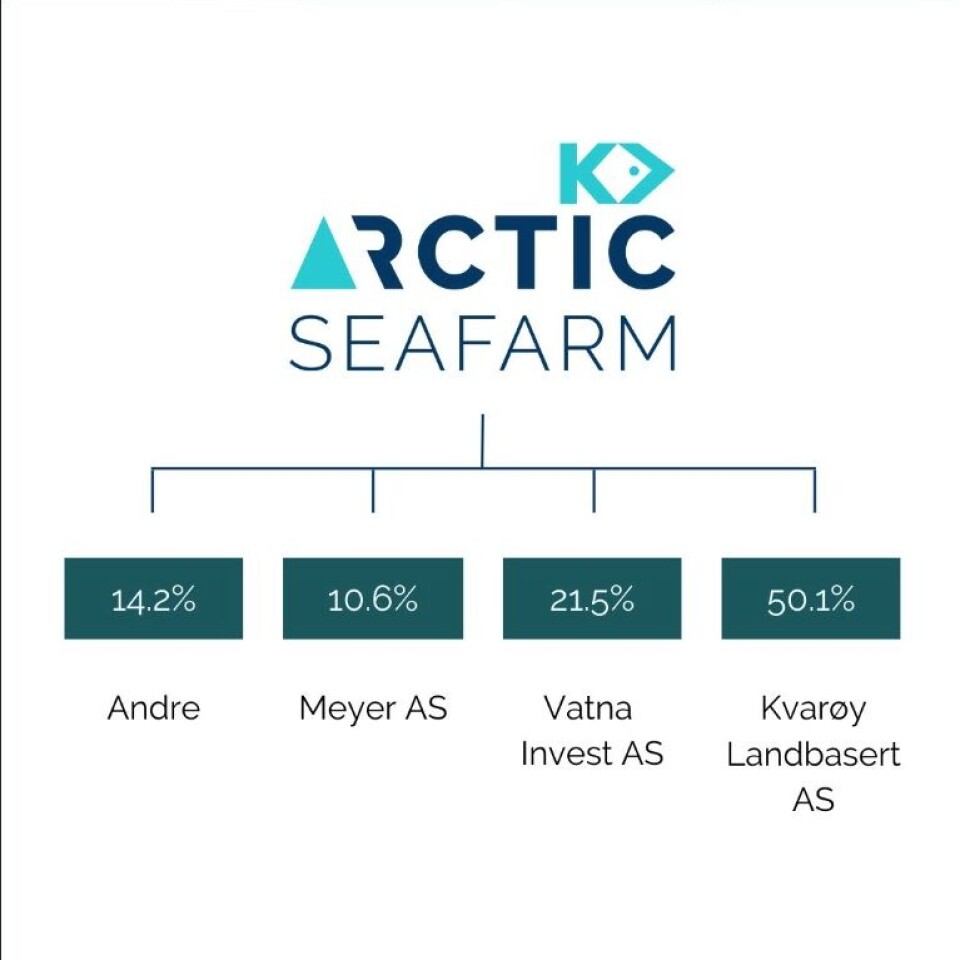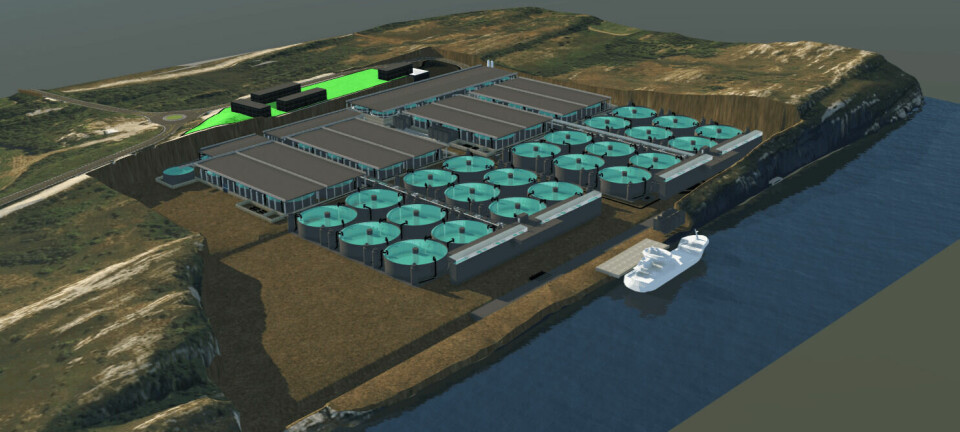
Sea-based fish farmer becomes majority owner of land-based salmon company
The solution for the future is that there will be farmers both at sea and on land, says Kvarøy boss
Northern Norway fish farmer Kvarøy Fiskeoppdrett has become the majority owner of a company planning a 15,000-tonne land-based salmon facility.
Kvarøy was already the largest shareholder in Arctic Seafarm, and took its stake to 50.1% when the company raised additional capital through a new share issue.
Alf-Gøran Knutsen is chief executive of Kvarøy Fiskeoppdrett, which farms in net pens and sells much of its fish to the United States.
Knutsen said he was happy that Kvarøy had now taken over control of Arctic Seafarm so that it could apply its long experience and expertise to continue to facilitate future food production.
Starting work in autumn
“We see that in order to continue to produce sustainable food in the future, we will have to find good solutions by, among other things, lifting parts of the production on land. The solution for the future is that there will be farmers both at sea and on land,” he said.
The Kvarøy boss said that the groundwork for the project is under way and that construction is planned to start in the autumn of 2023.

He explained to Heglands Blad newspaper that the capital raising will be used to cover the purchase of land, as well as the costs of detailed engineering. At the same time, he said that when the plant itself is to be built and put into operation, it will involve significantly larger amounts.
“The entire project has a total budget of around NOK 2 billion (£165 million), but the development will take place in several stages,” he told the newspaper.
Two phases
The flow-through facility will be built in two parts, with work on the second phase only starting after the first phase has been completed and put into production. According to the schedule, both phases can be in full production in 2027.
Seawater for the flow-through system will be brought in from different depths of approximately 85 metres and 35 metres depending on temperature and season.
The facility will be powered by electricity from rooftop solar cells, hydropower and recovered energy from production. Water will be cleaned before being released back into the sea and the waste will be filtered out and used for the production of biogas.
Total Betong AS has signed a contract as general contractor. The company has also been in the design phase, together with Eyvi AS, since 2021.























































